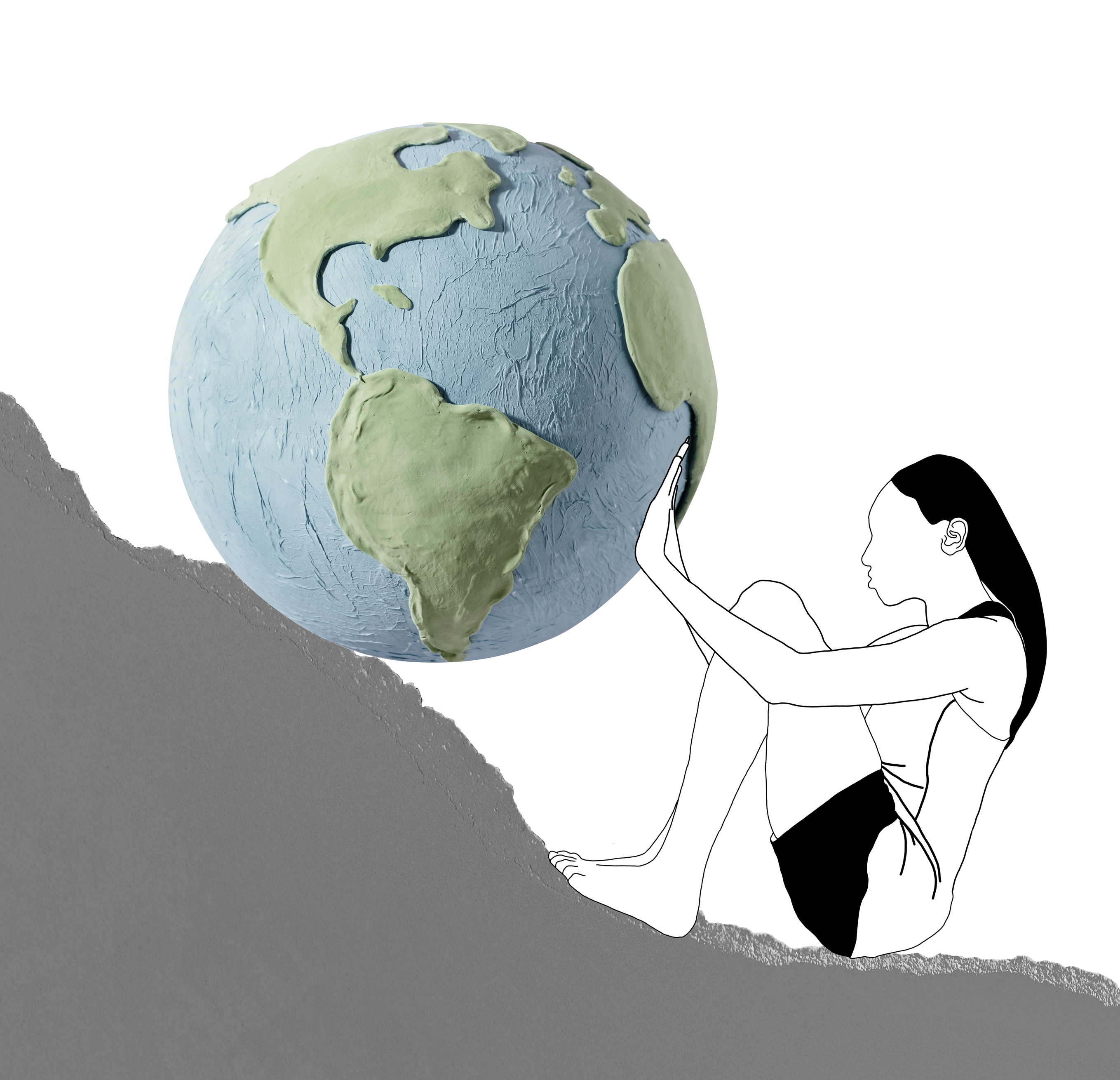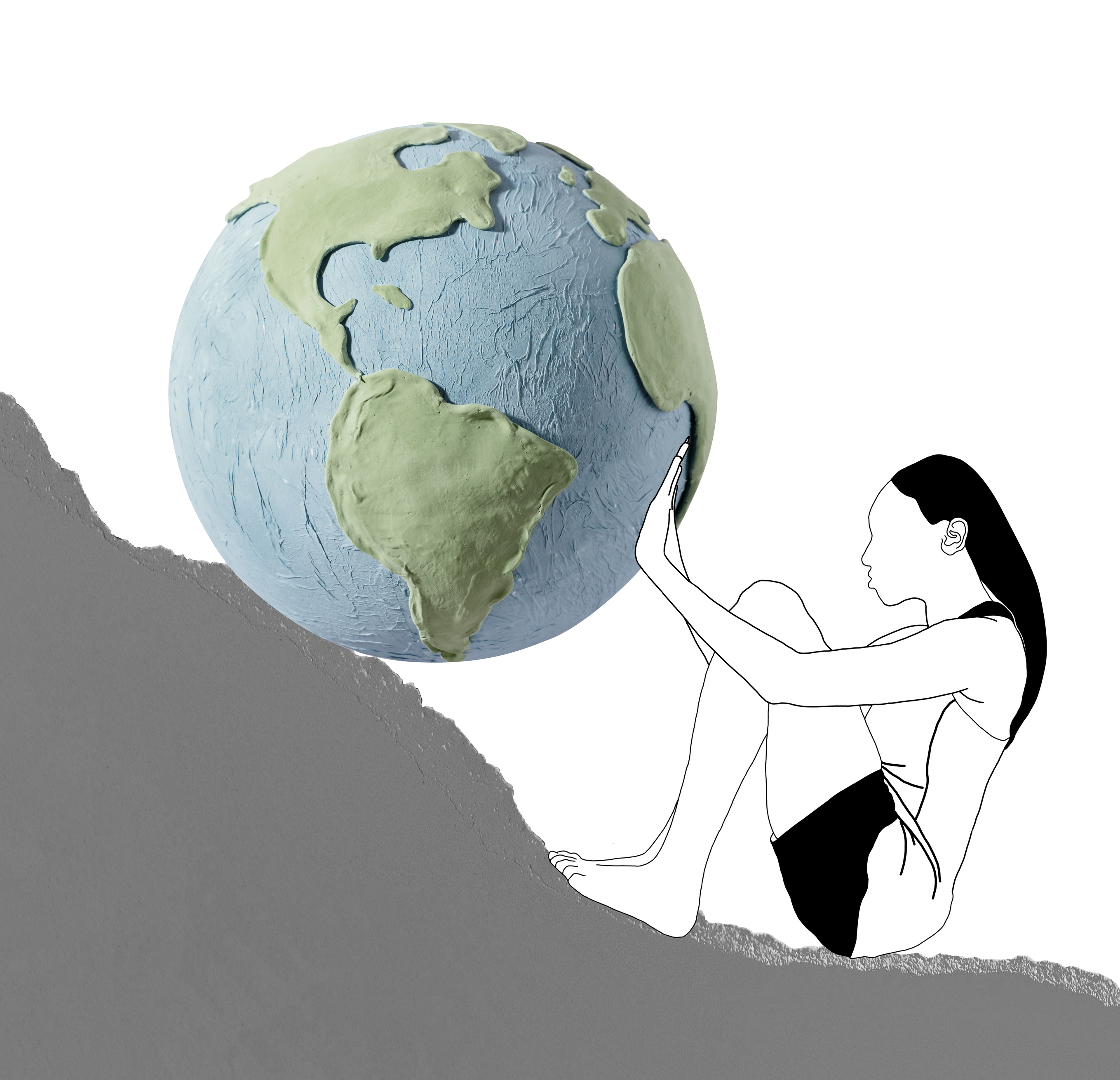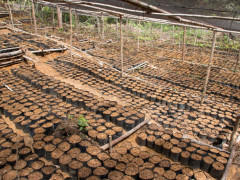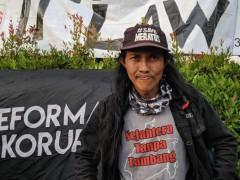When Fishermen in Rukam Village of Jambi Province Lose Their Fish
By Yitno Suprapto
Fruit From Afar

Both physical and mental health of many people are at stake. Besides respiratory issues, anxiety disorders due to the increasingly evident environmental degradation are spreading across various countries. Young people are the most affected group by this ecological anxiety. A survey of 10,000 individuals aged 16–25 from 10 countries found that 84% experience anxiety due to climate change. Many of them find looking toward the future to be a frightening prospect.
Eco-anxiety, a common term for this condition, is an emotional response to the escalating ecological crisis. Individuals are at risk of experiencing chronic fear of an environmental apocalypse. The causes are diverse, ranging from trauma caused by disasters, living in disaster-affected areas, to excessive consumption of information about the environmental crisis. Even those not directly affected by disasters but who have close risks and connections can experience eco-anxiety.
According to the DSM-5 (Diagnostic and Statistical Manual of Mental Disorders), eco-anxiety is not classified as a mental health disorder. However, if left unaddressed over the long term, this worry and fear can become real and impact health. Feelings of anger and despair can emerge, manifesting physically and mentally, potentially spiraling out of control and causing dangerous disturbances.
The sense of helplessness in reducing environmental damage makes various community groups, including young people, vulnerable to anxiety. They often feel that their efforts are too insignificant to alter the root causes, which are usually large-scale and challenging to address. Not only is it difficult to reduce the impact, but understanding the basic issues and challenges within each sector requires significant time and effort. The cross-sectoral overlaps are highly complex and cannot be tackled individually. Thus, personal efforts often seem to have negligible effects on the environment.
Pantau Gambut has identified at least 15 topics intersecting with peatland issues. Some of these include climate change, indigenous communities, culture, gender, energy, international relations, carbon trading, and more. Each topic carries its own complexities before being integrated into a comprehensive discussion on peatlands. High dedication is needed to engage in these discussions, yet it is also essential to maintain a balanced awareness to avoid becoming overwhelmed, which could lead to further distress.
The emergence of anxiety, coupled with the desire for everything to be alright, actually indicates that someone cares about environmental issues. However, it is crucial to maintain both physical and mental health while processing all the information related to disasters and crises at hand. There is no need to undertake grand actions all at once. By sharing news and stories about peatlands through social media, we effectively become conduits for filtering and selecting essential information to absorb.
Purchasing peat-friendly products produced by local SMEs is another enjoyable way to contribute to peatland conservation. Items such as woven products made from purun and rattan, Liberica coffee, processed swamp buffalo milk, and virgin coconut oil (VCO) are examples of commodities that are friendly to the peatland ecosystem. Besides the visual pleasure of shopping, this activity also supports local communities, enabling them to sustain themselves without relying on the productivity of monoculture plantations, which directly or indirectly harm peatlands.
Engaging in activities related to peatland conservation within your local community can also be beneficial. Collective efforts with others can create a support system, providing mutual encouragement and helping you engage in positive activities, connect with new people, and avoid feelings of isolation.
If anxiety and intrusive thoughts start to interfere with daily life, it is advisable to seek help from professionals such as psychologists or psychiatrists. Proper treatment will prevent harmful effects. We should not let the "fruits" from afar continue to cause distress. You are valuable! Just like the distant peatland ecosystem.



